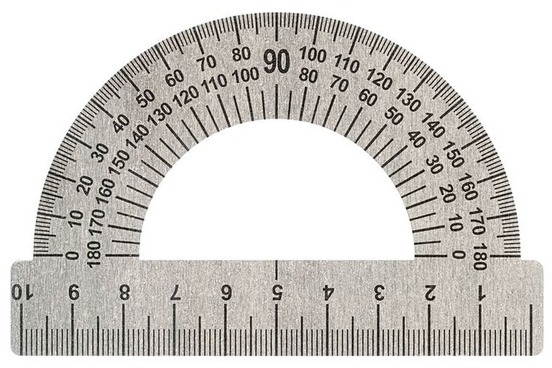
Adverbs of Time
Adverbs are the chameleons of grammar. They usually modify verbs, but they can also modify adjectives, other adverbs, phrases, and even entire sentences. They are magical, and they are, of course, categorized.
Now let's roll.
Adverbs of time answer the questions when?, for how long?, and how often?. They are very common:
It rained yesterday.
I'll call soon.
Nothing lasts forever.
I rarely forget my keys.
They stayed late.
The change is now under consideration.
Here are a few more:
Nowadays it's different.
I work nights.
They travel weekends.
There's something distinctive about that second group: they end in s. In fact, they look like plural nouns being used as adverbs. Their historical provenance becomes clearer if you imagine an apostrophe before that s.
The history of adverbs like nowadays starts with the genitive. That's the noun or pronoun form used to show that someone or something owns, controls, or is associated with someone or something else. In modern English, the genitive is usually shown with 's, as in "doing the day's work."
In Old English, the genitive was shown with es. And the genitive of some nouns could be used adverbially. For example, the genitive of the Old English word for day could be used to mean "in the daytime repeatedly."
This is how modern English came to have -s as a suffix used to form adverbs that denote usual or repeated action or state, as in nowadays et al.

Adverbs of Place
Adverbs of place answer the questions where? or in what direction?. They too are very common:
Turn here.
Go there.
The office is nearby.
I've looked everywhere.
It's a few miles north of here.
Nothing, by the way, prohibits an adverb from also functioning as another part of speech. North is an adjective in the north wall and a noun in coming from the north.

Adverbs of Manner or Quality
Adverbs of manner or quality give us information about how something happens or is done. These are the adverbs that turn up most frequently in a game of Mad Libs. Most of them end in -ly:
He walked quickly.
The train was surprisingly slow.
They clapped loudly.
I saw them playing happily.
But some very common adverbs of manner do not end in -ly at all:
They didn't do it right.
She did well on the test.
I saw them playing together.
This is, we assure you, OK.

Adverbs of Degree
Adverbs of degree provide information about how completely or to what degree something happens or is the case. Completely is one:
It was completely overwhelming.
I am somewhat confused.
That was more exhilarating than I'd expected.
You're being very patient.
It's almost ready.
It happened too quickly.
Lots of adverbs of degree end in -ly too:
They barely remember it.
It was hardly snowing.
The book was extremely exciting.

Adverbs of Affirmation or Denial
Adverbs of affirmation or denial are, no one will be surprised to learn, are used to affirm or deny:
Yes, it'll be fine.
No, I won't be needing that.
Sometimes the adverb is doing all the heavy lifting:
I did not.
Sometimes it's merely adding emphasis:
I certainly did do it.

Sentence Adverbs
A sentence adverb modifies the meaning of an entire statement, rather than a single word or phrase. It often expresses an attitude of the writer or speaker:
Hopefully, what is lost can still be recovered.
Luckily, I thought to check the trunk of the rental car.
Thankfully, the missing items were all found.
Sentence adverbs are very efficient. Note that in each of the above statements, the adverb can be replaced with the phrase "I am [related adjective] that," which is far clunkier.
Though sentence adverbs are often at the beginning of a sentence, they do not have to be:
The contest was, predictably, an easy win for her.
Many sentence adverbs that express attitude are also used as adverbs of manner:
Hopefully, it'll stop snowing.
"Maybe it'll stop snowing," she wrote hopefully and in April.
Historically, a number of grammar, uh, enthusiasts have counted this duality of function as a strike against some sentence adverbs, claiming that it's hard to understand who's expressing the attitude. To them we say:
Frankly, the objection is annoying given that it's clearly the writer who's got the attitude.
Furthermore, we'll frankly admit that attitude is something we have.

Relative Adverb
A relative adverb introduces a subordinate (or dependent) clause, which is a clause that isn't a sentence by itself. The relative adverbs of English are where, when, and why:
the season when roses bloom
the room where we were waiting
the reason why I was late
How is sometimes included too:
that was how I knew
In each case the clause gives more information about the thing that it refers to—the antecedent.

Interrogative Adverbs

Flat Adverbs
A flat adverb has the same form as its related adjective: safe in "drive safe" and easy in "take it easy."
Flat adverbs used to be much more common than they are today. For example, in Robinson Crusoe, Daniel Defoe writes of weather that is "violent hot." Samuel Pepys wrote in his famous diary of being "horrid angry." But most of these adverbs have long since been abandoned.
In Middle English adverbs like these had case endings that distinguished them from their related adjectives, but those gradually disappeared. Eighteenth-century grammarians didn't even identify flat adverbs as adverbs; they considered them adjectives and the adverbial use to be a mistake.
It's because of these grammarians that flat adverbs in phrases like "drive safe" and "go slow" are often disparaged today. A number of them still exist, but most of them compete with an -ly form: slow and slowly, safe and safely, bright and brightly.
A few flat adverbs exist right alongside -ly forms: the adverb tight is used in a few places tightly is not: "sit tight," "sleep tight." Near and nearly also do different jobs: "the day is drawing near" vs. "it's nearly over."
A few flat adverbs survive without any competition from an -ly version. Fast is one: "time goes so fast," "fast asleep." Soon is another, as in "we'll be there soon."





